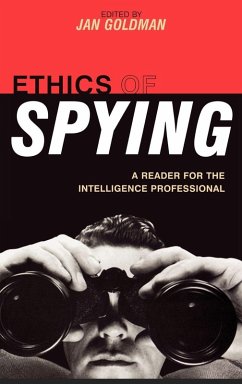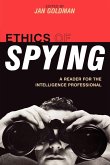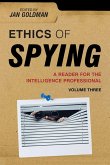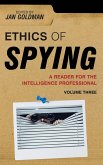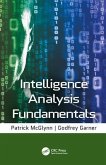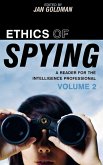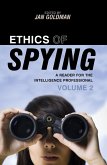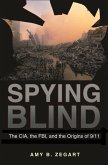This is the first book to offer the best essays, articles, and speeches on ethics and intelligence that demonstrate the complex moral dilemmas in intelligence collection, analysis, and operations. Some are recently declassified and never before published, and all are written by authors whose backgrounds are as varied as their insights, including Robert M. Gates, former Director of the Central Intelligence Agency; John P. Langan, the Joseph Cardinal Bernardin Professor of Catholic Social Thought at the Kennedy Institute of Ethics, Georgetown University; and Loch K. Johnson, Regents Professor of Political Science at the University of Georgia and recipient of the Owens Award for contributions to the understanding of U.S. intelligence activities. Creating the foundation for the study of ethics and intelligence by filling in the gap between warfare and philosophy, this is a valuable collection of literature for building an ethical code that is not dependent on any specific agency, department, or country.
Hinweis: Dieser Artikel kann nur an eine deutsche Lieferadresse ausgeliefert werden.
Hinweis: Dieser Artikel kann nur an eine deutsche Lieferadresse ausgeliefert werden.
...a definitive reference work on competitive intelligence ethics. Jan Goldman's selection and arrangement of content presented in this book is well thought out and certainly conveys the message that ethics in intelligence gathering is not an old joke or an oxymoron. Intelligence Insights ...deftly edited by Jan Goldman...an incredibly elaborate and intriguing read. Ethics of Spying is very strongly recommended to all policy makers, managers, supervisors, and employees involved in intelligence operations as well as the non-specialists general reader with an interest in espionage and spy history, ethics and tactics. Wisconsin Bookwatch Ethics of Intelligence is a compilation of 23 essays by numerous authors...Some are profound and provoke thought...The lead essay, 'Ethics and Intelligence,' by J.E. Drexel Godfrey is excellent. International Journal Of Intelligence and Counterintelligence, Vol. 20, No. 1 The complex moral dilemmas one faces in intelligence collection, analysis, and particularly in operations, are examined in recently declassified and never before published works by authors whose backgrounds are as varied as their insights... Intelligencer ...this book serves as a central reference for intelligence professionals looking for guidance...those who read this book cannot help but benefit from it by becoming more morally aware of the issues that confront our intelligence professionals daily. Defense Intelligence Journal, vol 15, no 1 (2006) The Ethics of Spying asks whether the intelligence profession can be ethical and effective at the same time. The potential conflicts between truth, cover, and deception are considered in the contributions from 25 authors, many with experience in the profession. Studies In Intelligence With the multiple scandals surrounding the torture of detainees at Abu Ghraib and elsewhere, the so-called "extraordinary rendition" program, and National Security Agency warrantless surveillance in the news, the ethics (or lack thereof) of intelligence is probably under more public scrutiny than at any time since the Church Committee hearings of the 1970s. The 23 papers presented in this collection are considered by editor Goldman (ethics and intelligence, Joint Military Intelligence College) to form the beginnings of an effort to develop a standardized code of ethics for intelligence professionals so that "ethics and intelligence" will be taken seriously rather than relegated to jokes about oxymorons. A number of opening essays consider the broad issues of ethics and espionage. Remaining essays include an "ethical defense of torture in interrogation;" consideration of the politicization of intelligence; discussions of the ethics of covert actions; and explorations of the role of sociologists, anthropologists, and businessmen in intelligence activities. Reference and Research Book News Overall, Ethics of Spying is a significant contribution to the literature of intelligence...For intelligence practitioners who have from time-to-time wrestled with their inability to reconcile what they learned in their academic training with the expectations place on them by their industry (and those that will...), this is the book that will inspire. It is a "must read" for every military, law enforcement and private sector intelligence professional. Australian Defence Force Journal

